National Arab American Heritage Month, April 2023
Departmental News
Posted: Apr 01, 2023 - 12:00pm
The UNM celebrates National Arab American Heritage Month, April 2023. Click on the red links below for more information. Scroll down to read about events, the history of National Arab American Heritage Month, research, news and organizations.
UNM Languages, Cultures and Literatures: Arabic Studies

"Arabic is a language with a rich intellectual and literary heritage, and has been a dynamic resource for political and cultural expression from pre-Islamic times to the present. Studying Arabic provides students with the skills to analyze a wide variety of political, social, religious, and cultural contexts from the Middle East and North Africa to Arab diaspora communities across the world. The UNM Arabic program offers courses at the elementary, intermediate, and advanced levels that focus on developing students' linguistic competence via culturally-situated contexts and cross-cultural comparisons." Learn more
UNM Asian American Pacific Islander Resource Center (AAPIRC)
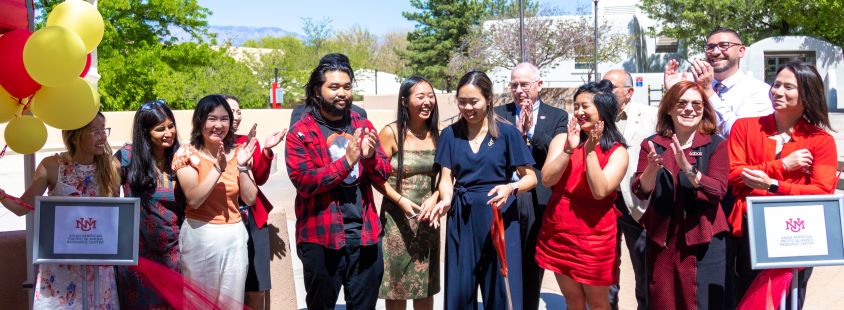
Mission Statement: The mission of the Asian American Pacific Islander Resource Center is to build a sense of belonging for students of Asian/Pacific Islander/Desi American Heritage during their studies at the University of New Mexico. AAPIRC also seeks to provide culturally relevant programs that cultivate Asian/Pacific Islander leaders within communities.
Vision Statement: The vision of AAPIRC is to provide a physical space where students are able to enrich college social experience and access state of the art student services, programs, research and educational opportunities without feeling the guilt of the “Model Minority Myth”. (Understanding College Student Subpopulations: Published by NASPA Student Affairs Administrators in Higher Education)." Learn more
UNM Global Education Office
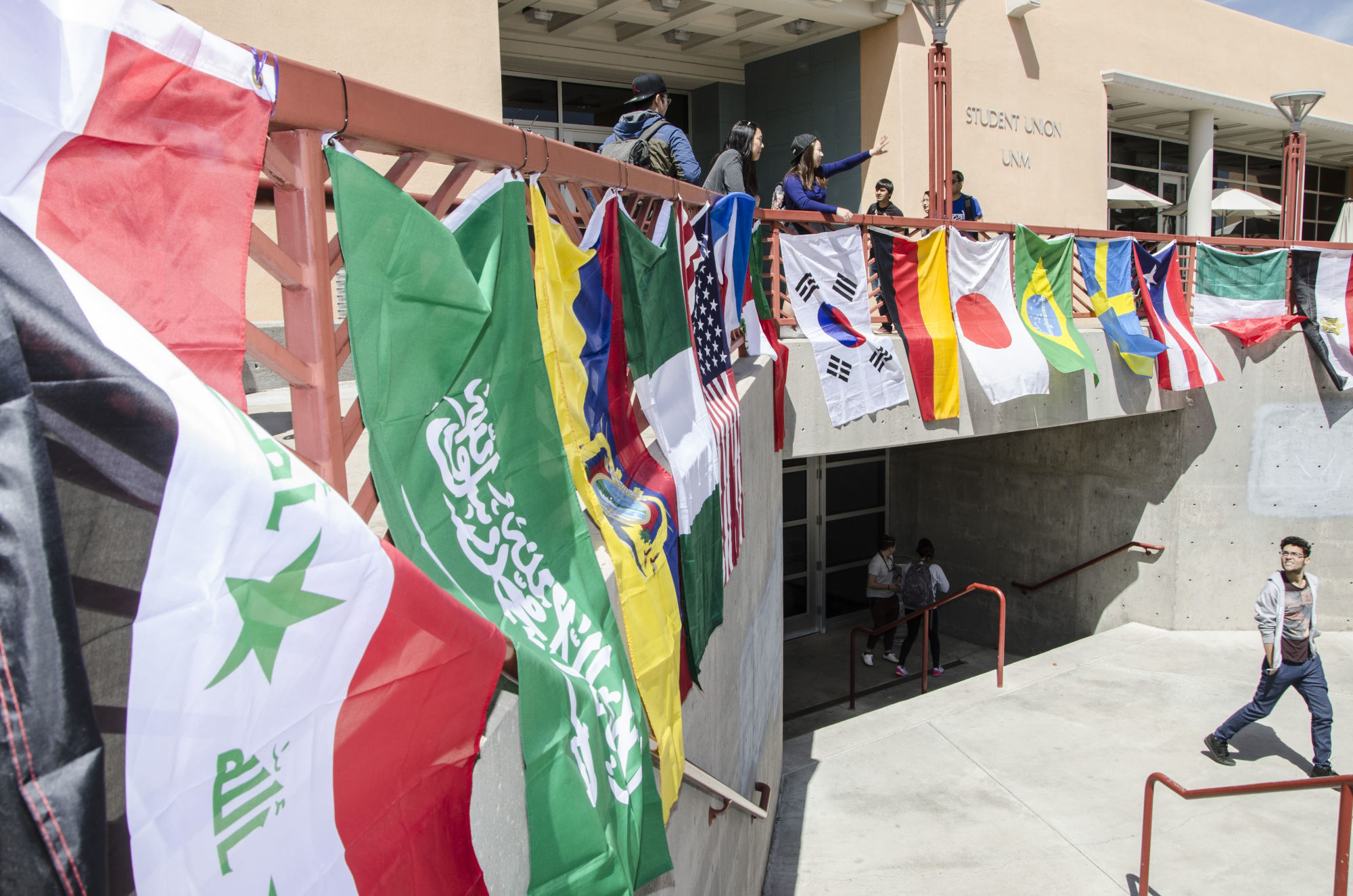 "We are a large service unit that facilitates international linkages, cultural exchange, global diversity, and the development of international expertise across all sectors of the university. GEO is responsible for international recruitment and admissions, creates opportunities to study and work overseas through exchange and education abroad programs, offers immigration, orientation and co-curricular advising services for international students and scholars who study and work at UNM, provides intensive English language programs at the intermediate to advanced level, and develops short-term certificate programs for adult learners."
"We are a large service unit that facilitates international linkages, cultural exchange, global diversity, and the development of international expertise across all sectors of the university. GEO is responsible for international recruitment and admissions, creates opportunities to study and work overseas through exchange and education abroad programs, offers immigration, orientation and co-curricular advising services for international students and scholars who study and work at UNM, provides intensive English language programs at the intermediate to advanced level, and develops short-term certificate programs for adult learners."
UNM Study Abroad: Noor Majan Arabic Institute (Muscat, Oman)
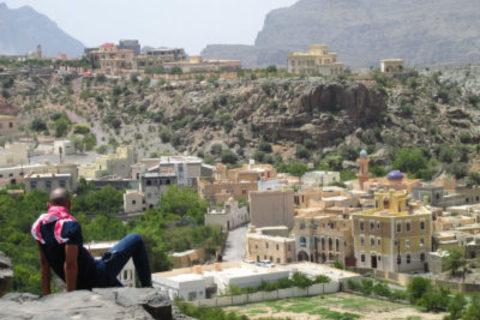 "Noor Majan is the leading Arabic language institute in the Sultanate, crafting educationally rigorous Arabic language and cultural programs, equipping students of all backgrounds with the skills and confidence to engage with the Arab world." Learn more
"Noor Majan is the leading Arabic language institute in the Sultanate, crafting educationally rigorous Arabic language and cultural programs, equipping students of all backgrounds with the skills and confidence to engage with the Arab world." Learn more
Events
April 6 4 pm A Stand of a Worthy Man, UNM Language Learning Center Movie Room (Ortega Hall, 1st Floor)
April 12-30 Nine Parts-PBS Broadcast, (streaming online) Arab National Museum
April 13 10-2 UNM International Festival (Cornell Mall), hosted by the UNM Global Education Office
April 13 4 pm Captain Abu Raed, UNM Language Learning Center Movie Room (Ortega Hall, 1st Floor)
April 14 6 pm Farha, Asian American and Pacific Islander Resource Center (AAPI) Recreation Room
April 20 4 pm Cairo Station, UNM Language Learning Center Movie Room (Ortega Hall, 1st Floor)
April 24, 12-2 pm Eid Celebration, UNM Language Learning Center (Ortega Hall, 1st Floor)
April 27-30 Arab Film Series Online: JADDOLAND + Talkback, Arab National Museum
April 27 4 pm Ghadi, UNM Language Learning Center Movie Room (Ortega Hall, 1st Floor)
Ongoing: UNM Languages, Cultures and Literatures Arabic Club, Tuesdays 11 am in the Language Learning Center Movie Room (Ortega Hall)
Public Broadcasting Service Online Films and Segments
About National Arab American Heritage Month
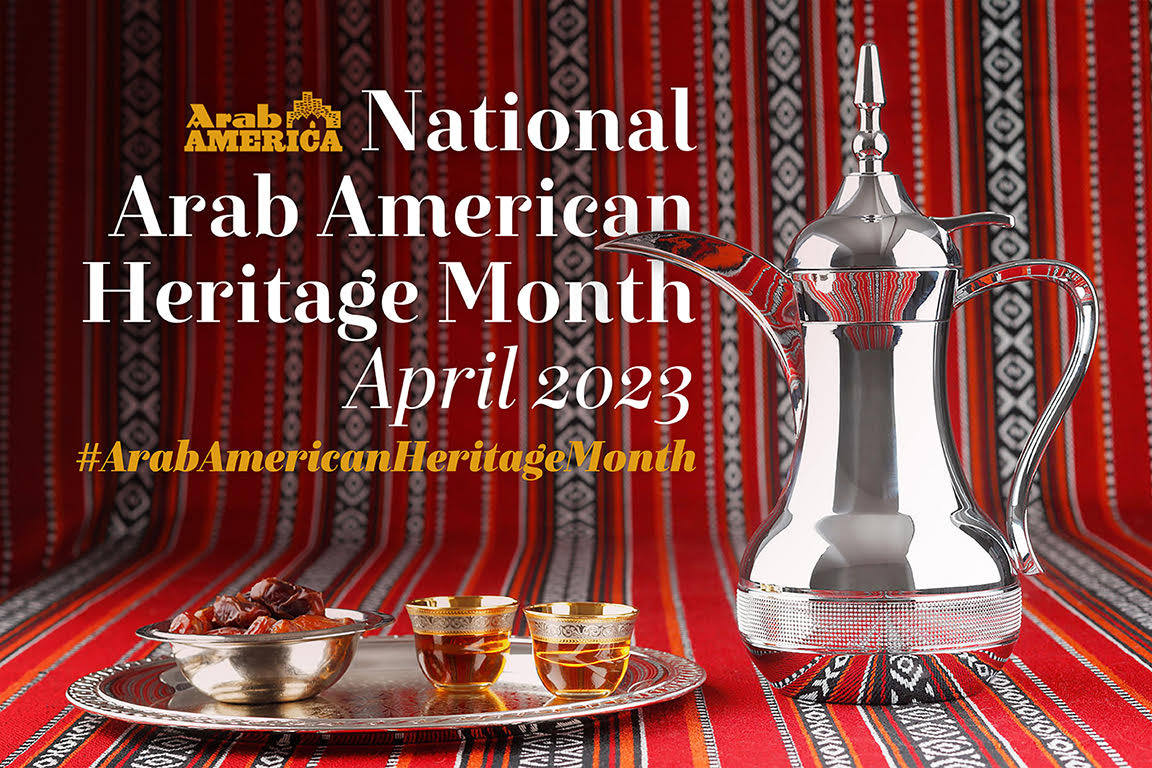 "During the month of April, the Arab America Foundation formally recognizes the achievements of Arab Americans through the celebration of National Arab American Heritage Month (NAAHM). Across the country, cultural institutions, school districts, municipalities, state legislatures, public servants, and non-profit organizations issue proclamations and engage in special events that celebrate our community’s rich heritage and numerous contributions to society." Learn more
"During the month of April, the Arab America Foundation formally recognizes the achievements of Arab Americans through the celebration of National Arab American Heritage Month (NAAHM). Across the country, cultural institutions, school districts, municipalities, state legislatures, public servants, and non-profit organizations issue proclamations and engage in special events that celebrate our community’s rich heritage and numerous contributions to society." Learn more
The History of Arab American Heritage Month
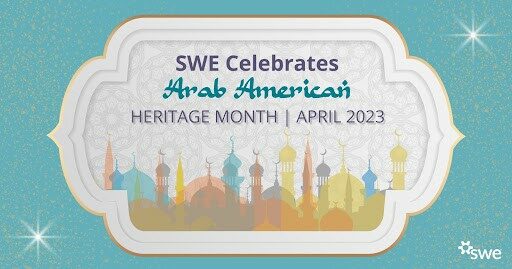 "In 1527, a Moroccan man by the name of Mustafa Azemmouri landed in the US as a slave, possibly becoming the first Arab individual to move to the US. Then in 1854, Antonio Bishallany immigrated from Lebanon to the United States and became the first official Arab American. Since then, there have been multiple waves of immigration from the Arab World into the US, and the number of Arab Americans is estimated to be over 3.5 million people today. Check out the Arab American Institute map to learn more about how this population is distributed among the different states.
"In 1527, a Moroccan man by the name of Mustafa Azemmouri landed in the US as a slave, possibly becoming the first Arab individual to move to the US. Then in 1854, Antonio Bishallany immigrated from Lebanon to the United States and became the first official Arab American. Since then, there have been multiple waves of immigration from the Arab World into the US, and the number of Arab Americans is estimated to be over 3.5 million people today. Check out the Arab American Institute map to learn more about how this population is distributed among the different states.
NAAHM first began to be celebrated in the 1990s, primarily sporadically in school districts. Gradually, it came to be recognized by more and more organizations in more and more states. In 2017, an organization called Arab America began the initiative to recognize the month nationally. In 2021, April was federally recognized for the first time as National Arab American Heritage Month." Learn more
White House: A Proclamation on Arab American Heritage Month, 2023
"The Arab American story is the American story — one of diverse backgrounds and faiths, vibrant tradition, bold innovation, hard work, commitment to community, and stalwart patriotism, all coming together to accomplish something greater than any one of us. This month, we join together to celebrate the immeasurable contributions of Arab Americans to our Nation and recommit ourselves to the timeless work of making sure that all people have the opportunity to achieve the American Dream.
Ours is a Nation shaped by the immigrant’s heart, and generations of brave and hopeful people from across all countries, including from the Arab world, have woven their unique heritages, customs, and talents into the tapestry of America. Today, the achievements of Arab Americans are reflected in the arts and sciences; in businesses and faith communities; in classrooms and hospitals; and in police stations, firehouses, and every branch of the military. Arab Americans are also proudly serving throughout my Administration, bringing a diversity of expertise that helps make this country stronger, more prosperous, and more just." Read the full proclamation
The Establishment of National Arab American Heritage Month: H.Res.1022 — 117th Congress (2021-2022)
US Department of State: Recognizing National Arab American Heritage Month
"Last year, President Biden became the first U.S. president to declare April as National Arab American Heritage Month, in recognition of the contributions of Arab Americans to the United States that are as old as America itself. Americans of Arab heritage have advanced the nation’s achievements in diplomacy, science, technology, as well as in art and culture. Arab Americans have also been at the forefront of the fight for civil rights and social justice. We mark National Arab American Heritage Month by celebrating the rich culture and heritage of Arab Americans and honoring the contributions to this country, including proudly here at the Department of State." Learn more
The Smithsonian Institute: Arab American History and Culture
"In 1962, Dr. Alixa Naff set out to tell the story of Arab immigrants from Syria and Lebanon. In addition to investigating an area that had received little scholarly attention, her use of oral history as the basis of the research was innovative. In 1984, Naff donated her collection including the oral histories, archival materials, and artifacts to the National Museum of American History. You can read about her inVoices from the past: Arab American Oral Histories and explore items from her collection and others related to Arab American history and culture from across the Smithsonian."
PBS: Who Are Arab Americans?
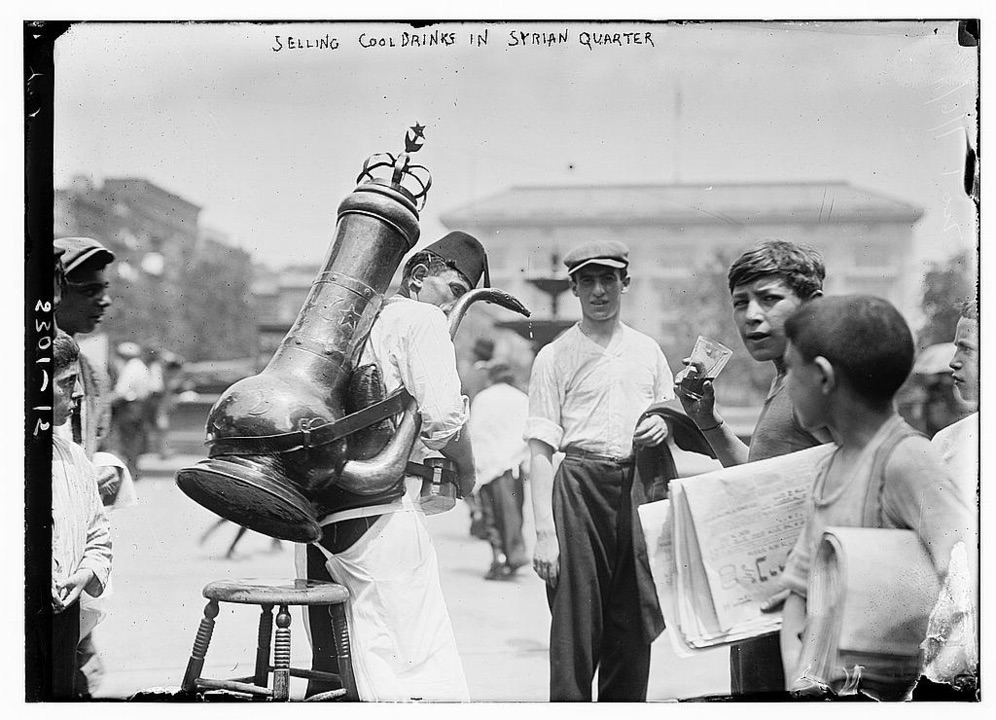 "Arab Americans include many faiths, races and ethnicities, and ancestry in any one of 22 Arab countries that span northern Africa to western Asia. What these diverse countries share most in common is the Arabic language.
"Arab Americans include many faiths, races and ethnicities, and ancestry in any one of 22 Arab countries that span northern Africa to western Asia. What these diverse countries share most in common is the Arabic language.
To illuminate some facts about Arab American identity, we looked to the Arab American National Museum in Dearborn, MI. Its Educational Book is an excellent primer and is free to download on the Arab American National Museum site. One common misunderstanding for Americans is to equate Arab with Middle Eastern, or Arab with Muslim. Arab countries represent one-fifth of the world’s Muslims, and Arabs are a minority among the U.S. Muslim population. The Arab American population in the U.S. today is estimated to be between 2 and 3.6 million; the largest group are Lebanese Americans, who have the longest history of immigration in the U.S." Read more
The Arab American National Museum (AANM)
"The Arab American National Museum (AANM) is the first and only museum in the United States devoted to documenting and sharing Arab American contributions that shaped the economic, political and cultural landscapes of American life. The Museum also brings to light the shared experiences of immigrants and ethnic groups, paying tribute to the diversity of our nation. We tell the Arab American story through the voices and experiences of Arab Americans." Learn more
Arab American Institute: Message from the President, Dr. James J. Zogby
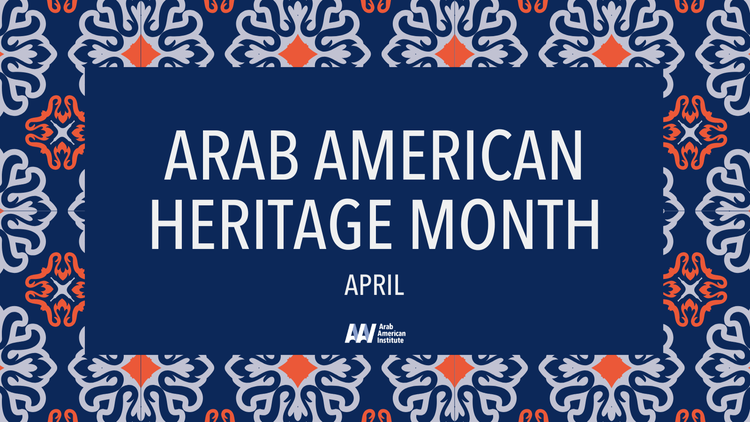 "On March 31st, President Joseph Biden issued a formal proclamation designating April as Arab American Heritage Month. That Mr. Biden took this step is significant, marking a turning point in our decades-long effort to secure recognition and respect for our community." Read the full statement
"On March 31st, President Joseph Biden issued a formal proclamation designating April as Arab American Heritage Month. That Mr. Biden took this step is significant, marking a turning point in our decades-long effort to secure recognition and respect for our community." Read the full statement
